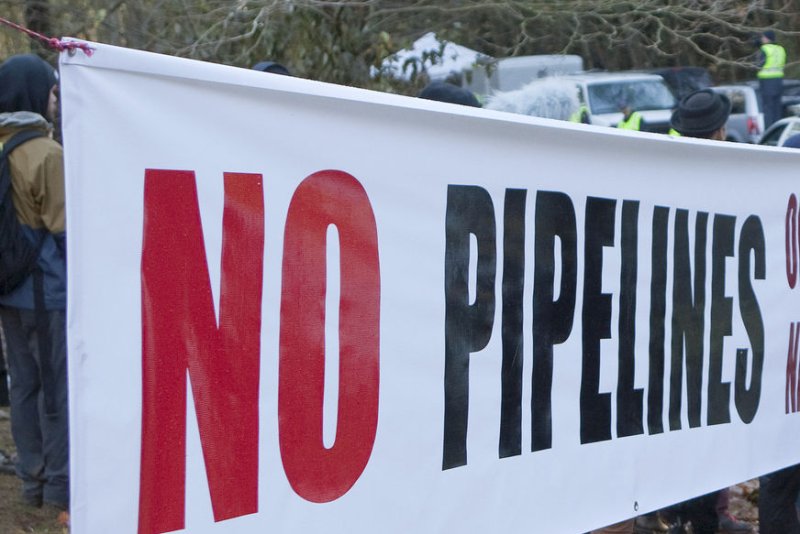The provincial government of Alberta expresses frustration with a proposal in neighboring British Columbia to limit the movement of oil. File photo by Heinz Ruckemann/UPI |
License Photo
Jan. 31 (UPI) -- A proposal to limit the movement of heavy oil through British Columbia is a political ploy that borders on a constitutional violation, oil-rich Alberta said.
The provincial government of British Columbia announced it was considering new regulations on bitumen, a heavier type of oil found in Canada. Included among the proposals was a restriction on transportation until the government determines what would happen if there was a spill of the thicker type of oil.
"We believe spills should not happen," George Heyman, the provincial minister for the environment said in a statement. "But if hazardous pollutants have potential to spill, our government will ensure that spillers must be prepared and able to fully mitigate the environmental damage before they proceed."
The National Energy Board, an independent federal regulator, ruled late last year that pipeline company Kinder Morgan doesn't have to comply with bylaws in the city of Burnaby, located in British Columbia, as it starts preparations to overhaul its Trans Mountain oil pipeline.
Burnaby in 2016 filed an appeal in federal court against the approval of Kinder Morgan's plans to expand the pipeline network, tripling its design capacity to 890,000 barrels per day. The city said it and its residents are "extremely concerned" about the risks from "dangerous" tar sands oil, the 13 new "high-risk" storage tanks in its community and the increase in oil tanker traffic along the western Canadian shore.
The project is part of a national effort to tap into markets outside North America as nearly all of Canada's oil exports go to the United States. Canadian oil production is increasing at incremental rates, but without new infrastructure, the industry is turning to rail to get oil around.
Alberta Premier Rachel Notley said the government in the neighboring province is over-reaching with its proposal.
"It does not have the right to rewrite our constitution and assume powers for itself that it does not have," she said in a statement. "If it did, our confederation would be meaningless."
Notley said British Columbia is sending the message that Canada doesn't mean what it says about its energy sector and puts the entire economy at risk.
Based on reserves for oil sands, a thicker type of oil, Alberta by itself ranks third in the world behind Venezuela and Saudi Arabia with a 2016 reserve estimate of 165.4 billion barrels.















